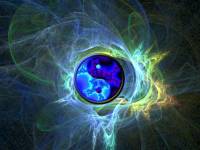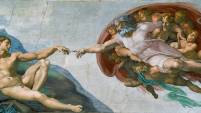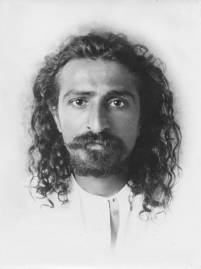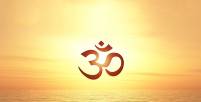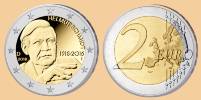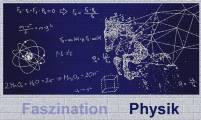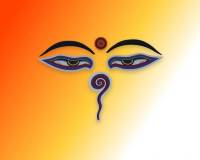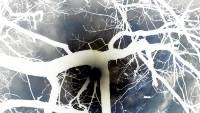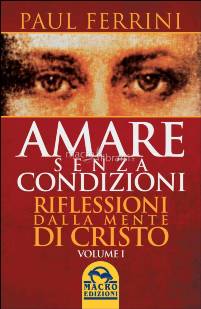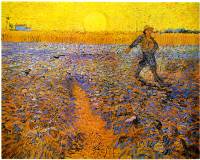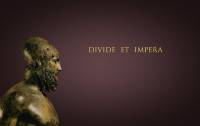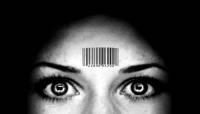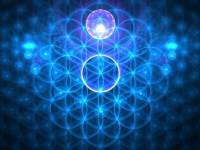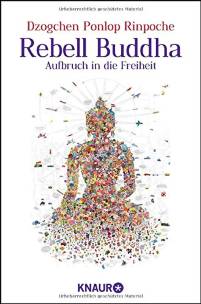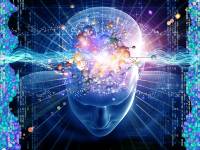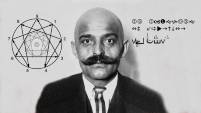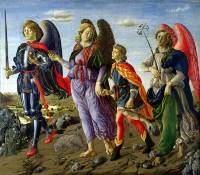Good and evil - Part 1: Is man good or bad?
Some years ago I took part in a mass in Vienna in an old village church, where a well-known Austrian cardinal gave confirmation to a group of fifteen-year-old girls and boys. Among them was the nephew of my partner - that is why I was there. The cardinal, now 96 years old and very sprightly, explained the sacrament to the confirmands. On this occasion - if one listened carefully - one could learn something about the Cardinal's image of man, which is a faithful reflection of the Church's image of man. In a subordinate clause he said: "Young people are not so bad as is always claimed," which means nothing other than that they are bad - just not so bad - whatever that may mean. In another subordinate clause shortly afterwards he said: "You can't talk to adults about demanding things like the meaning of life anyway. They only have their heads full of superficialities anyway, they are crass materialists". So they too are bad, one concludes razor-sharply, because they do not do what the Church preaches.
To cut a long story short: people are bad, or in other words, people are sinners - and that is why they need the church. There they can repent of their sins and are redeemed by Jesus` death on the cross. It is difficult to explain these statements with age relegation or age cynicism. The Cardinal, despite his old age, has still not succeeded in discovering what is true, beautiful and good in man. Why not? Because he is a faithful servant of the Church, which does not teach this. Where is the much vaunted wisdom of old age? 96 years old and still a baby faith? Something spiritually challenging was certainly not to be heard from him.
So I would like to ask the question here: Is man inherently good or bad? Perhaps you will now say: Good of course! And I would say: Wrong! Positive thinking does not help here. By the way, this always has a very limited effect. You can't lie to yourself all the time. Eventually, your self-esteem and desire for honesty will break through. So man is bad - could you conclude razor-sharply with the Austrian Cardinal quoted - and I answer again: No. But if man is neither good nor bad, what is he then? Man is sometimes good and sometimes bad. Both are equally valid.
When you ask: What is man, then the answer is different from when you ask: What is man from deep within. This "from deep within" points to the soul, the Higher Self, which man in reality is. And now how is man "from deep within", is he good or bad? Let me proceed step by step: The soul is the channel for the divine messages that we classify as intuitively received. We are the soul - even if we have not yet noticed it - and the personality should only be the tool, the servant of the soul - which is something that we sometimes fiercely resist. So can the soul be bad? No. Can it be good? Yes - God is good and our divine part is good, too. So man is good?
In this train of thought we have overlooked something very important: The soul does not live in a world of good and evil. Only the personality does that. The soul is beyond this black and white painting: good and evil, light and dark, high and low, day and night, etc. This is what is called duality (duality, oppositeness) or - if the opposite is complementary - polarity - there is also the opposite of everything - yin - yang. But the soul lives beyond duality and polarity. These opposites are the basis of creation as we experience it as human beings. But from a broader perspective this is an illusion. The cosmos looks completely different for the soul than the personality experiences it.
What is good and bad for the personality is neither nor for the soul. For the soul everything is equally valid! You should never associate something terribly boring with this, an even mix, a nullbock or the egalitarianism of politics and do-gooders ... That is no exaggeration! Many people see it that way with fear in their eyes! They confuse "equally valid" with indifferent, "doesn't matter" and uniform mash. It is not easy to understand duality. We usually see it as representing irreconcilable opposites; but it can represent the two sides of a coin, then it is more likely to be polarity. Then the opposite terms are already inseparably connected. From there to the view of the soul is then only a small but fine step in thinking, which we find so difficult to take.
We have so far avoided to address the evil, the dark etc. Now it is time to ask the question: Does evil really exist or is it just an illusion? I may answer with Meher Baba: There is no evil. There are only different degrees of good. This is not a gag. It is the truth. It expresses that whatever you encounter, whether you call it good or evil, can be helpful for your growth. This is by no means a belittlement of evil. What you call evil exists only in your perception of the cosmos. With your wrong thinking and limited consciousness you cannot perceive it as it is. You only see it as it appears to you or, even better, as you imagine the cosmos to be.
You are the creator of your "reality". This includes scientific research, for example in physics. Even the much-vaunted "double-blind studies" say only something about the states in the self-generated illusion and absolutely nothing about reality. For physicists on the research front, this realization is now slowly dawning and is understandably causing considerable unrest, because the whole old world view of the steadfastness of scientific research is being shaken. Under Science at this website you will find much about this subject.
If all humans would be blind, nobody would think e.g. about something like light. But that says nothing about the actual existence of light. We understand the world as dual. There are two opposite sides to everything. This is our pattern of thinking; it is our pattern of knowledge - everything that does not fit into this pattern does not exist for us. We do not even perceive it. That is why it is very difficult for us to get rid of this deceptive pattern that leads to the falsification of reality. We are trimmed for it from childhood. It has become so much a burden to us that nobody - except a few philosophers and sages - doubts it.
And since this concept seems to be true in everyday life, we tacitly assume that this is the truth that corresponds to reality. All observations that speak against this cognitive grid, we unconsciously fade out immediately. Therefore our experience of the world does not change. Is this an eye opener for you? I myself would never have thought that philosophical concepts have such an elementary influence on daily life, a friend recently said to me after we had discussed these questions. But this is not about philosophical concepts. It is about how we as human beings actually function! We are constantly swinging from one extreme to the other. And if you want to avoid that, you "sit quietly in a corner and wait until the fit is over" and you are at another extreme: this time the extreme of not doing anything as opposed to constantly doing something.
Peter Sloterdijk
When Buddha says we should come to the center, he means: we should leave the illusion of duality/polarity. Just as most people perceive evil, it is only part of duality and the opposite of good. For them, evil - like good - is the result of the illusionary perception of creation and therefore itself an illusion. If there is such a thing as "the good", there must also be such a thing as "the evil" in a dual cosmos. But there is no such thing as a divine evil (or good) above creation, and it is true that in this cosmos, new things are constantly being created and old things are constantly passing away. The entire perceptible cosmos has arisen from the energy of the primordial source and is always animated and inspired by it. In our earthly world, it is also intended that in the course of our earthly journey of experience and research, we will be tempted to see the cosmos in a distorted dual form and to suffer or rejoice in it. Why is this so? We will go into this in more detail in the second part.
Evil - like good - is solely the result of an illusory misinterpretation of the cosmos by man. If we human beings could see everything, hear everything, feel everything, taste everything and feel everything - and that as it really is - then there would be no evil, because evil comes from limitation of perception. It is our view of the world. From the viewpoint of the soul there is no evil - but there is no good either. Also all other divine beings are without any doubt beyond duality. Therefore, they cannot be described with terms from duality. Light is such a term from dual illusion.
God is neither light nor darkness. You come closest to the truth when you talk about God as the being about whom we humans - caught in the illusion of duality - can basically say nothing essential, because God exists outside of this duality. But tell that to Lieschen Müller. She wants a God that she can touch, that she can cuddle - but at least a God to whom she can look up in awe and to whom she can add attributes from the world that is familiar to her, which she does not find illusionary at all. That her idea of a benevolent, almighty God is an illusion only vaguely dawns on her in dark hours of doubt after a terrible misfortune or the death of a loved one.
The ancient Greeks, Romans and Germanic peoples were accused of having endowed the world of gods in their skies with all too human attributes. The Christian God is also subject to this statement - with only minor deductions. After all, the Greek and Roman gods had good and evil attributes and thus came even closer to reality than the Christian God, who is supposed to be only good on one side. Jehovah is even described as the jealous god. Evil, the devil, was then projected onto non-Christians, such as the Jews who supposedly killed Jesus. It is obvious that this is an unjustified, cheap projection that only leads to persecution and war. It is childish to believe that you yourself are always the good and the others are the bad.
Because evil is just as much a part of the whole as good, you cannot simply condemn evil and not want it, because the good also runs between your fingers. Both are the two sides of the same coin. If you don't like the "head" and therefore throw away the coin, then you lose the "tails" as well. It's that simple.
But what makes the matter particularly explosive: man is a nondual soul with a dual personality. The personality appears to be good and bad, the soul is neither good nor neither. This insight is also related to the recurring discussion about the right- or left-wing radical anarchists in politics. On the one hand, democracy grants freedom of opinion and its expression. On the other hand, it restricts this freedom by saying: the majority determines which opinions may be freely proclaimed. They must not be too radical:
If they are against the democratic form of government as a whole, then they are forbidden. If they are against the religion of individual or many members, then they are also forbidden. If the much-vaunted civil courage becomes too bold, then it is crushed by economic interests, and so on. This is a sensitive issue.
There is something else special in the world apart from what we just called evil. These are the forces that seem to work against the divine plan, not just against details. I call them "the evil" here once. Should we accept these forces or fight them or maybe just ignore them?
Of course these forces are also part of duality and the great illusion. We have no choice but to tolerate these forces. Ignoring them is wrong and dangerous. After all, they are there. But we don't need to accept them; we are allowed to take our own, different standpoint and if necessary take a stand against these forces or even take active action against them. However, we should be careful not to waste energy that would be better spent elsewhere in a creative and positive way. Many well-meaning people from the cuddle-elesoteric scene are basically against fighting. However, in doing so they deny one of the three aspects of the deity: the will aspect. Whoever does this becomes one-sided, cannot become healed or holy.
And how is it then with the love of God? People often say: God = love or also God = consciousness. Here you have to distinguish between earthly love as the opposite of hate and a quality called unconditional love. In the same way, there is a very high "consciousness" about whose qualities we humans cannot say much. We simply do not really know what these qualities are. We only know that they are completely different from our illusionary dual world view.
Unconditional love doesn't want anything, because it is selfless and unconditional; it doesn't burn either - it is rather cool, it is all-encompassing in a dimension that we seldom feel. We experience it as a mystical gift - when we are at times one with everything. Almost all people are not capable of unconditional love; this would mean that they do not expect any benefits for their loving deeds, not even "to go to heaven". God/Spirit, of course, is not limited to love, but is much more; ''it'' is All THAT IS.
"The sun shines on sinners and the righteous alike." Christians have seldom really understood this sentence from the Bible, and even more rarely have they taken it consistently seriously. The unconditional love of God constantly benefits all people equally; not only the good, pious, but also those who are working on a learning task that is among those areas that are commonly considered (but not really are) evil, bad or sinful.
And therefore God never needs to forgive us anything ... and God never condemns anyone. God has never condemned anyone. Only the church takes it upon itself. It not only has sin, it has even invented mortal sin and eternal damnation. You see how the Pope puts himself above God? If that is not blasphemy. Fortunately, very few people still believe that. You can't tell people everything these days.
In this connection I would like to remind you of "the parable of the weeds under the wheat" in the Bible:
"The kingdom of heaven is like a man who sowed good seed in his field. Now while the people were sleeping, his enemy came and sowed tares among the wheat and went away. And when the seed sprang up and the ears of corn were formed, the tares also came forth. Then the servants went to the lord of the manor and said, "Sir, did you not sow good seed in your field? Where then do the weeds come from? And he answered, An enemy of mine hath done this. And the servants said unto him, Shall we go and pluck it up? And he answered, Nay; lest ye also pull up the wheat with the weeds. Let both grow until the harvest. When the time of harvest comes, I will tell the workers, "First gather up the tares and bind them in bundles to burn them up, but bring the wheat into my barn.
How is this parable to be interpreted here and now? Let me try. The field is the earth, of course. The seed is them, the people. The entity that provides the seed for sowing is the one who sent us humans to the earth, God or the Logos of our solar system. From him they come, so he is their true home, the "Kingdom of Heaven" of the parable. The two sowers are the embodiment of good and evil in our dual view of creation. The good sower, for example, is Jesus, because people believe that he promotes the so-called good in them; the bad sower is Satan, from whom they assume that he promotes the so-called bad in them. Since they are "good" at one time and "evil" at another time, both happens to them: they succeed (wheat) or make mistakes (tares). They learn from both, but through both they grow.
In the parable neither of them is hindered! This is the crucial point: God lets both kinds of seeds grow until the harvest, because in the duality as which this creation appears to us, there is always both. One is as important as the other. Or can you throw away one side of a medal without losing the other? This parable clearly proves that you can accept and live both sides of duality in order to enter the Kingdom of Heaven, that is, to become enlightened. In this parable both wheat and weeds are harvested: The wheat is eaten, the weeds are used to produce energy - heat from within and from without!
If you interfere while growing, you destroy the experimental arrangement, the basis for earthly experiences. You are supposed to learn in the illusionary duality - only then you can leave it behind. Our experiences leading to growth cannot be limited to good.
The Church has - to create confusion and enmity - called and condemned a part of man and the whole of creation as evil. Devotedly, as people in the Piscean Age were under the influence of a heightened inclination to idealism and devotion, they then repressed the evil within themselves and pushed it into their subconscious, believing that they could thereby free themselves from sin. But they do not get rid of evil so easily and quickly; duality cannot be overcome even by good intentions. Just let yourself think about this again.
But there is a tendency to be evil if you think you can gain an advantage by doing so. People tend to be evil through their identification with their body and their feelings, because evil harmonizes better with the low vibrations of matter than good. They do not have to strive for it. The inertia of matter leads to comfort. This is probably why the fear of evil - of chaos and crime, of anarchy and "Wild West methods" has prevailed, and the Church and governments have squeezed people into a flood of laws and prohibitions, of laws and regulations - supposedly always in the hope that this will make them live orderly and quietly. When you look at the history of the last 2000 years, you quickly come to the conclusion that the concept has failed miserably. It was all about divide and conquer.
How else can you explain the fact that well-behaved fathers, who are outwardly only positive or not at all conspicuous, secretly abuse children, rape women in case of war and are capable of the most terrible cruelties? The outer whitewash is crumbling away at times, the "evil" suppressed by the prohibitions, which lurked inside as a shadow, is breaking out. It suddenly becomes apparent where these people really stand. The three; sin, guilt, atonement have held back development for millennia or more. This is wanted by the forces behind church and state.
In the ruling circles, people have thought about how to enforce the commandments and have tried - as primitively as it is obvious - by force. So they themselves have resorted to the means of evil in order to prevent the evil of other people. Where - I ask you - is the fundamental difference between a person who kills another person and a people who kills another people, for example in war, and those in power who execute citizens of their own state - as is still the custom in the USA?
Of course, one can construct tricky differences in order to gloss over one's own actions. But in reality and honesty there is none. All three cases are murder, all three belong to the world of evil. From this alone it follows that violent suppression cannot work, because "the devil is driven out by Beelzebub" - even and especially when one violence is called "justice and police". For there are unfair motives at work on the part of those in power: the whole thing has not been staged in order to promote people spiritually, but solely in order to be able to rule and exploit them. For this reason too, the system cannot lead to real transformation. But that alone is the meaning and goal of life on this learning planet Earth!
In order to make things run better, people have not only been threatened with worldly punishments in case of misconduct but also with divine ones. Anyone who drives through a red light, who drives 80 km/h instead of 50 km/h, who does not pay customs or too little tax or employs illegal workers is a criminal and a bad person. As every person has often been guilty of something, everyone walks along with a bad conscience and is therefore very easy to manipulate. The trained bad conscience and the guilt complex have been so deeply inserted into the human being that there are only a few who have successfully freed themselves from it.
In court, people who do not regret their deeds are accused of a "lack of sense of wrongdoing" and a defendant is treated more gently if he regrets his deed. This serves to cement the disastrous system. The people then show calculated or compulsively trained - in any case lying - remorse in order to get a milder punishment. And after a while everything is back to normal.
I ask Allah, my Lord, for forgiveness from every sin and turn to him in repentance
Our whole system of society is deliberately built on dishonesty and external whitewashing - from both the state and the church. It is a black magic system that incites people instead of transforming them. Of course, in a human society with the currently still prevailing unconsciousness, one must agree on certain rules of conduct and also keep to them. This can also support the integration of the personality.
But whoever keeps to worldly laws and the church's commandments and prohibitions is not a "good" person, but rather a well-trained one; and therefore not automatically also a conscious one. It can very well be that a person progresses faster in his development of consciousness precisely because he does not keep to some of the rules and commandments and instead follows his intuition.
These rules do not serve the development of consciousness. They are only meant to create a fake good behavior imposed from the outside. They do not work from within. The suppression of a part of human nature can never lead to the further development of the human being - he cannot experiment freely under the influence of external rules. It can be a learning task to see through this system. But there has been so much opportunity for this over the past millennia that it is now really time to explore new ways of making people progress more quickly. In any case, they can realise these new paths for themselves, even if they live in an old-style society. It all depends on you, dear readers. If you really want to, you can free yourself from the prison of the three: guilt, sin, atonement and your conscience. If you listen to the inner voice of your soul, then the messages of the conditioned conscience quickly land on the garbage and intuition takes their place.
Gehirnwäsche
The flood of rules in public life lulls the citizen into false security. Everything becomes (apparently) safe. He is not paying attention - he is dreaming. The safer life seems to be, the less attentive the person is. Attention, presence in the moment, however, is required. They alone bring us further in terms of consciousness! The call "Safety first" must not become the all-inclusive motto of life - otherwise all spiritual growth ends.
This is suggested to us: we only need to change the external circumstances and we are fine
Love is the child of freedom
The observance or transgression of worldly laws and ecclesiastical commandments and prohibitions can no longer be enforced with guilt, sin and atonement. These three are highly dangerous inventions that entrap mankind ever deeper in bondage. We have experimented with them long enough - we now know that they are harmful. Enough is enough! We see now that the trained conscience does not prevent wars, chaos, blood and tears and instead stops the development of human consciousness. Love is the child of freedom, not the child of oppression. But love and wisdom are the goal of all of us!
If a person transgresses a law established by the community to which he belongs or to which he is visiting, then it may be all right for him to make up for it in some appropriate way. These are then the rules of the game that he has to abide by when he is there. But he is not a bad person or a sinner because of that, but only a person who acts out of comfort, or who risks a little more than the others to get ahead.
Equality, the false promise
The Naked Monkey
Rebel Buddha, ascent for freedom
The people who are most upset about the "criminals" also have a lot to do with this subject themselves. Decency shown to the outside world is usually just whitewash! The shadow lurks ... Basically, the ultimately always arbitrary interventions of the (unconscious!) regulatory authorities are superfluous. However, if a society decides to do so, and if people incarnate into this society again and again, then the whole thing is justified, because there is obviously something to learn. The danger lies in the fact that this system maintains itself over obviously very long times and prevents changes. This means that the system prevents people from really learning and growing from the mistakes they have made.
If a person does something that is considered evil or forbidden in the society concerned, then he should do it with as much awareness as possible and only if he feels really good about it. He must, however, be prepared to bear the consequences, which should not or only little matter to him. It is the good and very useful right of every human being to behave differently from what is expected of him. Thank God many people exercise this right with a good feeling in their stomach. Often there is a (very important) learning task behind it. In this way, they successfully reduce the trained conscience - a lengthy process.
The more consciously a person acts, the faster he understands what learning task is behind his actions. Do not underestimate, for example, the high degree of attentiveness, skill, organizational talent and presence in the moment, which the profession of a burglar requires and trains. Also in this way you can become more conscious - and all people have their turn. As Bert Brecht once asked: "What is burglary in a bank against opening a bank?"
Die neue Weltbank in Peking
the disillusioned truthfinder
One can divide people into two groups: 1. those who serve themselves (the egoists), and 2. those who serve others (the altruists). Both ways ultimately lead to the goal. Often there is a mixture. Read this article on this topic.
Besides, it's all relative. What is considered evil in one state and at one time is tolerated or even rewarded in another state and at another time. For example, the interest rate system currently prevailing in our country is accepted and propagated by society. In Original Christianity, however, it was considered reprehensible to take interest. This also applies to Islam. The Jews were allowed to do so and in this way they made themselves unpopular with the gentiles. In the meantime, Christians are also charging interest. In this way, a few exploit the rest of humanity. How much longer?
Everything is relative. No one gives us the right to judge - not even the courts. And there they blame the lack of a sense of injustice - although the person concerned is perhaps only much more conscious than the public prosecutor and judge. The individual human being does not even compensate for his actions in every life. Compensation and supplementation happen in the sum of all lives. And it is still one of the main goals of man to free himself from the grip of the illusion of duality - this is what gaggles him, not the evil!
We repress evil because we are afraid of it. If we would take it and look at it, it would lose its terror and could not harm us. In the unconscious, the suppressed evil as a heavy mortgage burdens our actions, feelings and thoughts so much that at times we do, feel and think the opposite of what we have planned and want in our daily consciousness. In this way, the dual character of this world has once again become apparent to us and this false, illusionary view has been further consolidated.
This foul trick of repression only creates the impression that good and evil really exist. Yet, under the influence of our religious and worldly leaders, we have only recreated it again and again. Wheat and weeds may grow together? Yes, of course - they must. Perpetrator and victim always belong together. If we let the perpetrator slip under the table and opt only for the victim, then the latter is no longer a victim.
This reminds me of the story of a thief who was caught red-handed one day in a Buddhist ashram. The monks were very upset and asked the master to send the thief away. But the master said, "This person you are so upset about is a mirror without whom you cannot grow. Your excitement has betrayed you. "The thief stays."
Gurdjieff - a famous spiritual master from the first half of the last century - is said to have even paid a person who repeatedly "disturbed" his community near Paris and involved the disciples in fierce arguments, so that he would not leave. This person accelerated the growth of the disciples, although superficially he disturbed, that is, he embodied evil.
These are remarkable events that shed a significant light on our subject. What can you do? You can overcome this illusion of duality only if you think at least once that there might be another view of the world and that you do not have the only right one. Next, you might be toying with the idea of having made a mistake. As long as you don't at least begin to allow yourself to have this false view of the world, there is nothing you can do about it. Finally you should realize that this view is definitely wrong, an illusion, and only then can you rise above it. If you suppress a part of it that is supposedly bad, you only cement duality and never get rid of it.
In this context it is helpful to briefly examine the concept of original sin. Is there such a thing as original sin? The concept of original sin is simply wrong; it does not appear in the NT; it is an invention of Augustine and the Church to discipline the faithful. The final consequence of this is the eternal damnation of sinners, which the Catholic Church still preaches today. The biblical account of the fall of man has been misinterpreted. The faithful are to be made compliant through fear. These concepts of original sin and eternal damnation mock Jesus' message of love. This Catholic God is not even just - let alone loving or Christian!
And the thing with the devil and fallen angels? Here, too, there is a primitive distortion of the Scriptures that is no longer necessary today to explain the world to ordinary people. They are more likely to be frightened off in the 21st century because they are seen through.
Evil is as much a part of duality as good. The light of knowledge also comes over mistakes. The theologians have not yet been able to explain conclusively where evil comes from. They have said that the devil is the origin of evil. But the devil is an angel who stumbled because he succumbed to the temptation of pride. Temptation? Pride? But that means that evil existed before him! So the evil did not come from him after all. Then who did? We'll deal with that in part two.
Satan, the Prince of the World
Since humanity experiences duality in its strictest form with guilt, sin and atonement, it has become the symbol of the "devil" as a whole - and the devil is the symbol of matter and sexuality. This is why Jesus of the NT once said: "The devil is the prince of this world. The devil is the representative of our unconscious shadow areas that keep us in unconsciousness. But sexuality and matter are neither good nor bad. They are both energies...
Only a too long attachment to matter - beyond the necessary experiences - hinders our way home to God - but this is not a sin either. That is why the devil as the embodiment of evil is suitable as the symbol of matter. The devil is a symbol within the framework of our fictitious, illusionary, dual world view. More about this in part two.
And what about the angels? Angels are independent entities that only in exceptional cases incarnate once as human beings with a material body. They make other experiences on other levels of being, where they can grow and increase their consciousness. In terms of consciousness they are comparable to the enlightened Masters of different degrees.
The abused faith
OSHO: Love, freedom. being alone
The 3 eyes of cognition
The problem with the concept of God stems from the fact that people - above all the educated theologians - have repeatedly tried to project earthly limited (dual) concepts with dishonest ulterior motives into higher realms where these concepts do not work at all. Basically, man created his God in his own image and not vice versa. This means that all religions and their associated gods are man-made or at least fitted out - in keeping with the limited three-dimensional world view. They are very often sun gods.
Before we close, I would like to summarize in a few words the main points of Jesus' "Good News" as I understand it: People are allowed to recognize,
that all people are children of the one God/Spirit and therefore brothers and sisters,
that man's immortal spark of God, the soul, is eternal
that there is no death, only a change of physical garment, and
that the will of God is revealed as his plan unfolds more and more.
May in each of you, dear readers, the innate Christ Consciousness of love as well as wisdom in the heart come to flower in all its glory.



